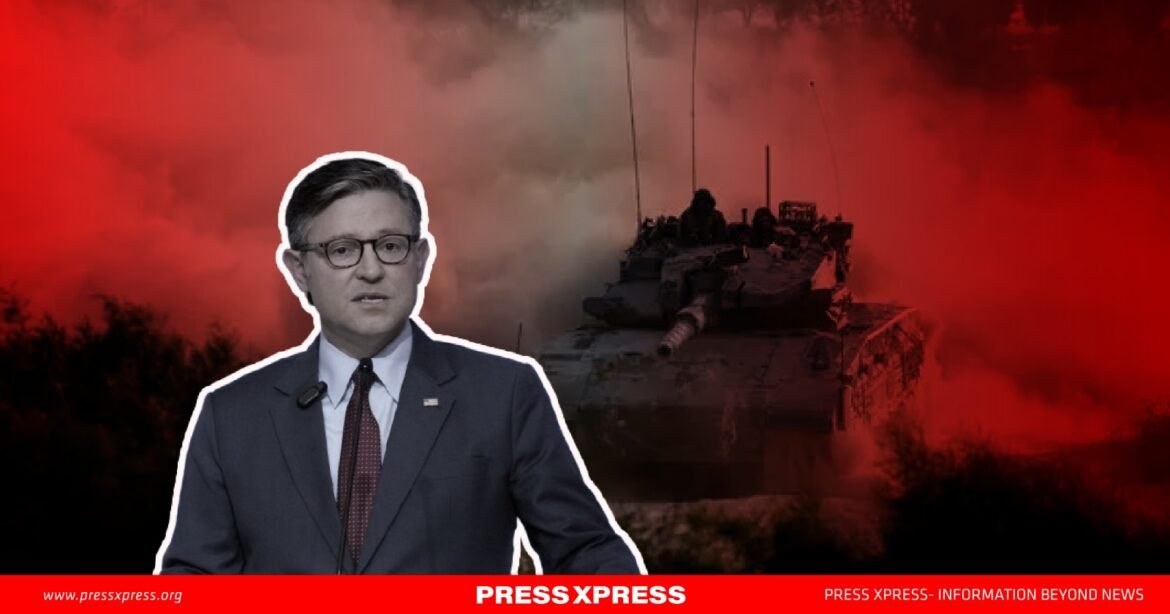An Israeli tank maneuvering near the Israel-Gaza border this week. The war has expanded to include Iran and its proxies.Credit…Amir Cohen/Reuters
Leaked U.S. intelligence documents have surfaced, revealing Israel’s military preparations for potential strikes on Iran.
The highly classified documents are believed to originate from the National Geospatial-Intelligence Agency (NGA), which is responsible for analyzing satellite images and other intelligence gathered by U.S. spy satellites. The documents provide insights into recent Israeli military exercises and operational readiness, pointing to rising tensions between Israel and Iran.
The two documents, dated October 15 and 16, were circulated on pro-Iran Telegram channels. These documents detail satellite analyses showing Israeli military maneuvers that appear to be preparations for a retaliatory strike on Iran. This follows an Iranian missile barrage on October 1, which was a response to a prior Israeli attack.
One document, titled “Israel: Air Force Continues Preparations for Strike on Iran,” outlines Israeli exercises involving air-to-air refueling, search-and-rescue drills, and the repositioning of missile systems to protect against potential Iranian retaliation. The second document discusses Israel’s efforts to move munitions and military assets to strategic locations. Although the documents do not include the satellite images themselves, they indicate that Israel is gearing up for a significant military response, though the full scope of Israel’s intentions remains unclear.
U.S. Response and Investigation
The unauthorized release of these classified documents has led to a swift investigation by the U.S. government. U.S. House Speaker Mike Johnson confirmed the investigation during an interview on CNN’s State of the Union, stating, “The leak is very concerning, and there are serious allegations being made.” Johnson noted that he would soon receive a detailed briefing on the matter.
Three U.S. officials, speaking to the Associated Press on condition of anonymity, confirmed that the investigation is focused on how the leak occurred and whether other sensitive documents could be at risk. A fourth official confirmed that the leaked documents appear legitimate. The investigation is also exploring whether the leak was an internal breach or the result of an external cyberattack. U.S. officials are working to determine who had access to the documents before they were leaked on Telegram.
U.S. officials are also reviewing security protocols within the intelligence community to prevent future breaches. There is concern that more classified documents could be leaked, potentially undermining U.S. diplomatic efforts and military operations in the Middle East.
Concerns Within the U.S. Government
The leak has raised concerns within the U.S. government, particularly regarding its potential impact on U.S.-Israel relations and broader Middle Eastern stability. Some officials downplay the significance of the leak, arguing that it does not reveal new American military capabilities or other critical information. However, others are alarmed by the exposure of sensitive Israeli military plans, especially as tensions in the Middle East remain high.
In a statement, the Pentagon acknowledged it was aware of the leaked documents but declined to comment further. The timing of the leak has complicated U.S. efforts to manage the region’s growing instability. As the U.S. seeks to balance its diplomatic efforts with its security commitments to Israel, the exposure of these military plans adds an additional layer of complexity to the situation.
Broader Implications for U.S.-Israel Relations
The leak could have far-reaching implications for U.S.-Israel relations, especially as Washington has been urging Israel to exercise restraint. American officials have reportedly advised Israeli leaders to capitalize on recent military successes in Gaza and push for a ceasefire to prevent further escalation. Additionally, the U.S. has cautioned Israel against expanding military operations in Lebanon, warning that such moves could trigger a broader regional conflict involving Hezbollah.
Despite these efforts, Israel’s leadership has signaled that it will not let Iran’s recent missile attacks go unanswered. The leaked documents reveal the extent of Israel’s readiness, but they also complicate Israel’s military strategy by exposing its preparations at a critical moment.
U.S. President Joe Biden confirmed his awareness of Israel’s planned strike on Iran, responding with a brief “Yes and yes” when questioned about the issue during a recent trip to Germany.


